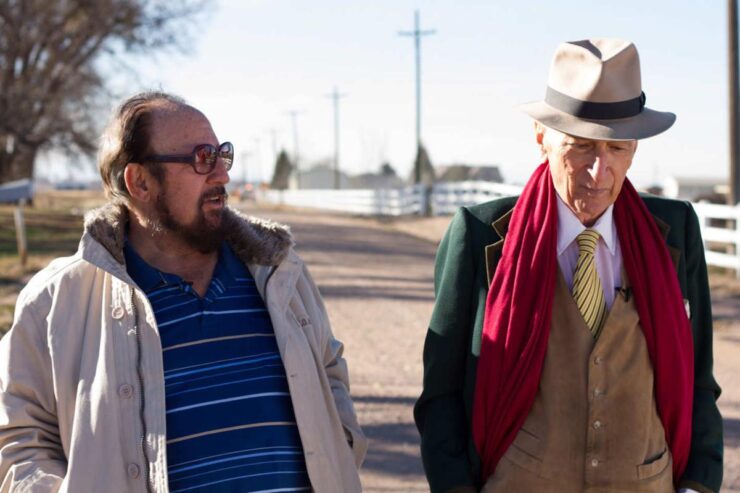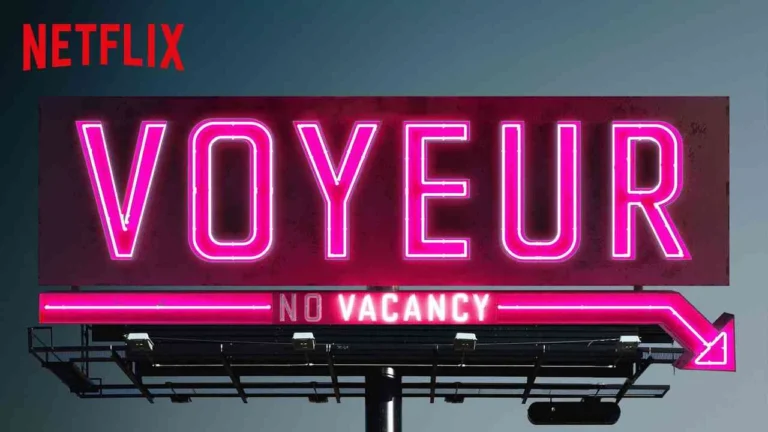Out of the blue, what shows up on our queues but the Netflix original documentary Voyeur. Directed by Myles Kane and Josh Koury, Voyeur shifts its focus between Gerald Foos, a man who owned and operated a hotel for decades in order to spy on its occupants, and Gay Talese, the renowned American journalist who’s made Foos the subject of his epic book.
The filmmakers tell the story through clever re-enactment combined with Talese interviewing Foos, plus real-time observations of its subjects as the drama unfold.
For me, every new documentarian stands in the shadows of Werner Herzog and Errol Morris. These living legends know how to break the fourth wall with style and have made it an industry standard for all documentarians hereafter. Herzog’s narration is sweet nectar to a hummingbird, and when Morris shouts out to his subjects behind the Interrotron, sure he sounds like an asshole, but he’s making good points.

Kane and Koury, in contrast, enter their film with variable results. In one scene, Talese learns Foos’ seedy motel has been torn down. We hear the filmmakers’ voices off-camera as they convince Talese to travel with them to the empty lot, because, “It will make a powerful image.” In the next scene, we see the characters walking around idiotically in a field of grass. Do you see how they cut the wind from their own sails, and for what?
They are redeemed a little in the end, during a tense interview between Foos and Talese on the eve of the book’s release. Talese loses his temper and calls the filmmakers “cameramen,” (sick burn!) lacking in journalistic integrity. Here, we get the briefest of shots of the men behind the camera, and whether Talese is right or just being a big baby is left for us to decide.
The first and most interesting thing about Voyeur is what Gerald Foos allegedly did (I say allegedly because the veracity of his account will become fodder as the narrative unfolds, but never mind that now).
I mean, holy cow, Foos bought a motel in Colorado in the 1960s, installed vents in the ceilings of each room and a series of corridors in the attic to move about in, and then not only did he spy on the occupants of each room for more than 30 years, he kept a detailed log of his findings, as though he were some kind of anthropologist instead of a deeply disturbed sex offender eligible for heavy prosecution under the law.
The second most interesting thing about Voyeur is Foos himself, who lives in a magnificent home that stores thousands or millions of dollars of memorabilia collected over the years. In spite of his icky habits, he has an affable enough personality and a sweet relationship with his second wife, Anita (she knew all about the snooping), though he ends the picture as a lumpy, uncomfortable-looking 83-year-old man (which we learn from a birthday cake creepily presented by Anita).
Then we have the nonfiction author Gay Talese, a proud, meticulous man forever-clad in well-tailored suits. He too has a spacious home, filled to the brim with his collection of articles and other clippings from a career that spans six decades.
Finally, it’s interesting to observe whatever synthesis filmmakers Kane and Koury are attempting to make between the journalist and his subject. And if that sounds like a damning with faint praise, I don’t mean it to. I still heartily recommend Voyeur on the strength of its subject matter, as it transcends any quibbles I have with the execution.

